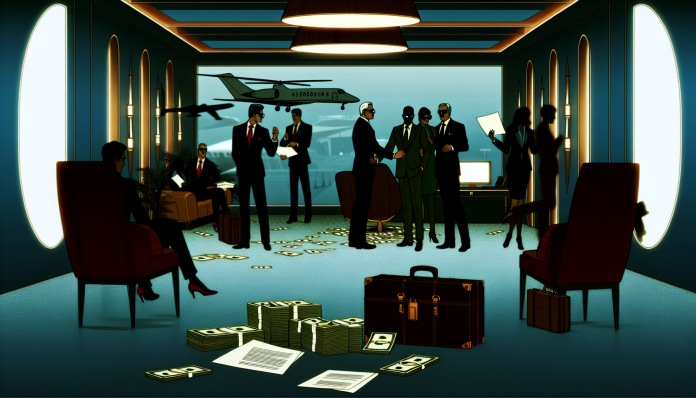Introduction
Silvio Berlusconi, Italy’s controversial media tycoon and political powerhouse, is infamous for his charismatic persona and a series of explosive scandals that have defined his legacy. His tenure as Prime Minister experienced multiple controversies, but none would be as scandalous and detrimental to his career as the events surrounding his “bunga bunga” parties. These revelations not only captivated the Italian public but ultimately contributed to his political downfall. The scandals unfolded against a backdrop of traditional Italian values challenged by the surfacing of modern media and more liberal attitudes in society.
The Scandal: Bunga Bunga and the Underbelly of Italian Politics
In the late 2000s, Berlusconi was embroiled in a series of scandals typified by extravagant parties allegedly hosted at his estate in Arcore. The term “bunga bunga” became synonymous with illicit festivities that featured young women, some of whom were reported to have been underage, engaging in risqué activities. Specific allegations included claims that these events involved sexual favors in exchange for political support, and participants described the gatherings as “orgies of sex and drugs.”
Key events included:
- 2010 Investigations: Italian prosecutors began investigating claims of underage prostitution involving a Moroccan dancer named Ruby Rubacuori (Ruby Heartstealer), who was only 17 at the time of her attendance at Berlusconi’s parties. Berlusconi was accused of paying for her sexual services.
- Media Frenzy: Reports emerged highlighting instances where Berlusconi used his influence to secure favorable media coverage, escalating public scrutiny.
- Berlusconi’s Defense: His denials were rife with bravado, insisting he had only hosted these gatherings as a means of socializing. He famously downplayed the situation, declaring, “I have done nothing illegal.”
Throughout this tumultuous period, public outcry was palpable. Newspaper headlines screamed of betrayal and moral decay, while late-night comedians had a field day with the revelation. The moral compass of Italian society was reeling; polls indicated a stark divide between those who viewed Berlusconi’s antics as entertaining and those who deemed them unacceptable for a nation’s leader.
Moral and Cultural Analysis
The societal reaction to Berlusconi’s actions highlighted a dramatic clash between traditional norms and the sweeping changes being ushered in by the 21st century. On one hand, conservative elements felt that the fabric of Italian society was under threat, while liberal factions rallied to praise Berlusconi as a figure who challenged the status quo.
Consequences for Berlusconi were severe:
- He faced multiple legal battles, including a conviction for tax fraud in 2012, which ultimately barred him from public office.
- Public support waned significantly, leading to the collapse of his government in 2011 as Italy grappled with economic strife and a crumbling political landscape.
Fast forward to today, and such scandals invoke very different reactions. In an era characterized by the #MeToo movement and heightened awareness around issues of consent and sexual exploitation, the societal lens would likely be far harsher. The acceptance of celebrity culture’s excesses is dwindling, giving rise to a cultural ethos that demands accountability from public figures. As such, Berlusconi’s actions would be met with severe condemnation rather than the bemused tolerance that characterized certain segments of the Italian populace during his scandals.

